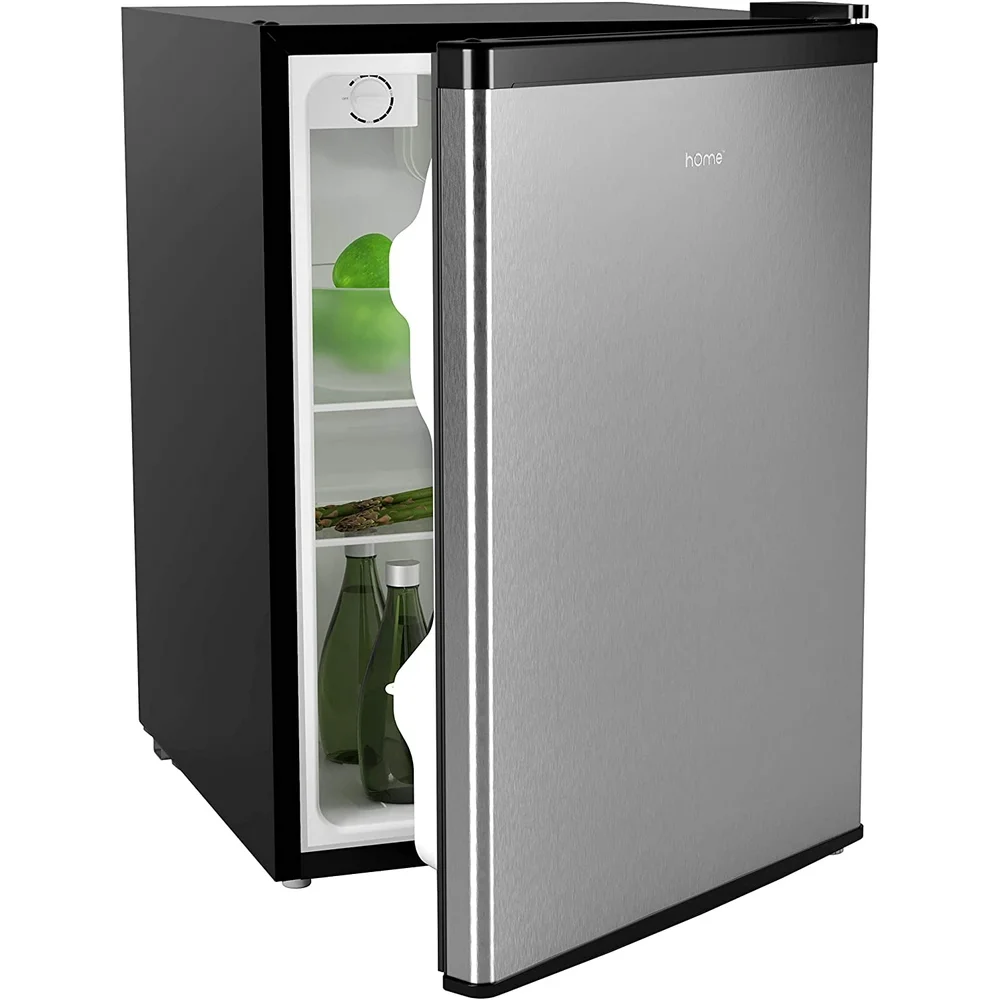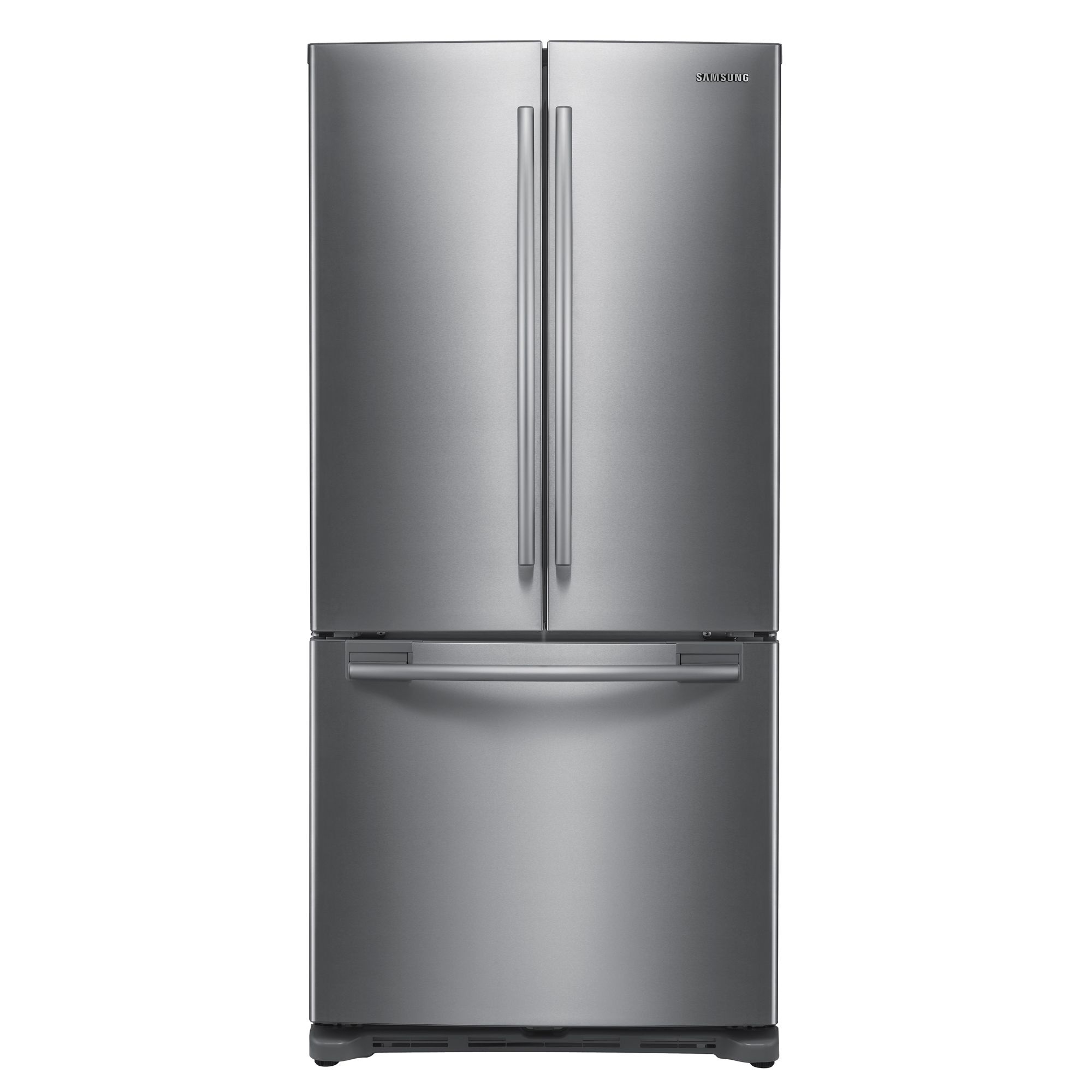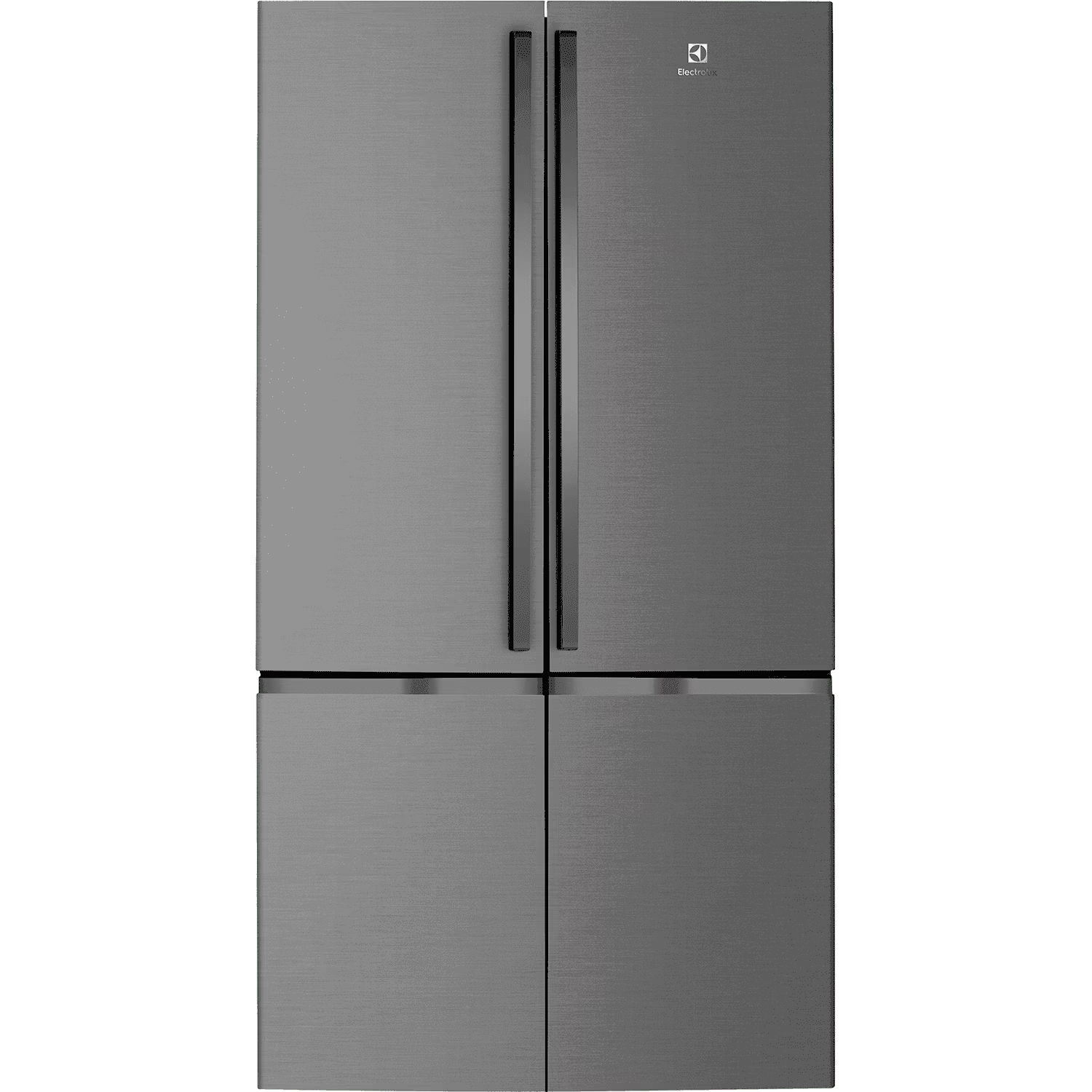Why did my refrigerator stop working? Encountering a malfunctioning refrigerator can be both frustrating and inconvenient. Whether you’ve noticed that food isn’t staying cold or there’s an unusual noise emanating from the appliance, understanding the underlying causes is crucial in addressing the issue effectively. In this comprehensive guide, we delve into the various reasons why your refrigerator might have stopped working, exploring both common and less obvious factors that could be at play.
Common Electrical Issues
Why did my refrigerator stop working? Electrical problems are among the most frequent culprits behind a non-functioning refrigerator. These issues can range from simple power outages to more complex internal failures.
Power Supply Problems
One of the first things to check when your refrigerator stops working is the power supply. Ensure that the appliance is plugged in properly and that the outlet is functioning. You can test the outlet by plugging in another device, such as a lamp, to see if it receives power. Additionally, inspect the power cord for any visible damage, such as fraying or cuts, which could disrupt the flow of electricity.
Faulty Thermostat
The thermostat regulates the temperature inside your refrigerator. If it’s faulty, the appliance may not cool correctly or may not turn on at all. A malfunctioning thermostat might show inconsistent temperature readings or prevent the compressor from activating. To diagnose this issue, you can use a multimeter to test the thermostat’s continuity. If the thermostat is defective, replacing it can restore proper cooling functionality.
Malfunctioning Compressor
The compressor is the heart of the refrigeration system, responsible for compressing refrigerant and circulating it through the coils. If the compressor fails, the refrigerator will stop cooling. Signs of a faulty compressor include loud noises, shaking, or the appliance not running at all. Replacing a compressor can be costly, so it’s essential to determine if this is the root cause before proceeding with repairs.
Mechanical Problems
Why did my refrigerator stop working? Mechanical issues can also lead to a refrigerator ceasing to function. These problems often involve the moving parts of the appliance that are essential for its operation.
Broken Fan Motors
Refrigerators contain various fan motors, including the evaporator fan and the condenser fan. These fans help circulate air and maintain consistent temperatures. If a fan motor breaks or becomes obstructed by debris, the refrigerator may not cool properly. Cleaning the fan blades and ensuring they spin freely can resolve minor issues, but a malfunctioning motor might require replacement.
Defective Evaporator Coils
Evaporator coils absorb heat from the refrigerator’s interior, allowing the cooling process to occur. If these coils become defective or clogged with dirt and grease, their efficiency decreases, leading to inadequate cooling. Regular cleaning of the evaporator coils can prevent such issues, but significant damage may necessitate professional repair or replacement.
Damaged Door Seals
The door seals of your refrigerator are designed to keep cold air in and warm air out. Over time, these seals can become worn, cracked, or dirty, compromising their effectiveness. Damaged seals allow cold air to escape and warm air to enter, making the refrigerator work harder to maintain the desired temperature. Inspecting and replacing faulty door seals can significantly improve cooling performance.
Cooling System Failures
The cooling system of a refrigerator is a complex network that requires various components to function correctly. Failures within this system can lead to the appliance stopping altogether.
Leaking Refrigerant
Refrigerant is the substance responsible for absorbing and releasing heat within the refrigerator. If there’s a leak in the refrigerant lines, the cooling efficiency drops, and the appliance may stop working. Identifying and repairing refrigerant leaks typically requires professional assistance, as handling refrigerants requires specialized knowledge and equipment.
Clogged Condenser Coils
Condenser coils dissipate heat extracted from the refrigerator’s interior. When these coils become clogged with dust, pet hair, or debris, their ability to release heat diminishes, causing the refrigerator to overheat and halt functioning. Regularly cleaning the condenser coils with a vacuum or brush can prevent this issue and ensure efficient cooling.
Frozen Evaporator
A frozen evaporator can block the flow of air within the refrigerator, preventing proper cooling. This can result from a defective defrost heater, a malfunctioning defrost timer, or dirty coils. Defrosting the evaporator and addressing the underlying cause can restore normal operation.
Control Panel or Display Issues
Why did my refrigerator stop working? Modern refrigerators often feature digital control panels and displays that regulate various settings. Problems with these components can affect the entire appliance’s functionality.
Faulty Control Board
The control board acts as the brain of the refrigerator, managing operations such as temperature regulation, defrost cycles, and alarm systems. If the control board malfunctions due to electrical surges or component failure, the refrigerator may become unresponsive or behave erratically. Diagnosing control board issues typically involves testing with a multimeter and may require professional replacement.
Display Malfunctions
Issues with the display screen, such as flickering, unresponsiveness, or incorrect readings, can indicate problems with the control panel or internal sensors. While some display issues might be cosmetic, others can affect the refrigerator’s ability to maintain proper temperatures. Resetting the control panel or updating the firmware (if applicable) can sometimes resolve these problems.
Age and Wear
Like all appliances, refrigerators have a finite lifespan and can experience issues as they age. Wear and tear on components can lead to various malfunctions over time.
Old Compressor
As the compressor ages, its efficiency decreases, and it becomes more prone to failure. Regular use can lead to wear on the compressor’s internal components, eventually causing it to stop working. In older refrigerators, a failing compressor might signal that it’s time to consider purchasing a new appliance.
Deteriorating Insulation
Over time, the insulation within a refrigerator can degrade, reducing its ability to maintain a consistent temperature. Poor insulation forces the cooling system to work harder, increasing the likelihood of malfunctions and higher energy consumption. Replacing insulation is often impractical, making prevention through proper maintenance essential.
Worn Out Parts
Various parts of a refrigerator, such as hinges, handles, and internal shelving, can wear out over time. While these issues might not directly cause the refrigerator to stop cooling, they can contribute to operational inefficiencies and increased strain on other components, potentially leading to more significant problems.
User Errors
Sometimes, the reasons behind a refrigerator’s failure to function properly are related to user actions or settings. Understanding and correcting these errors can restore the appliance’s performance.
Overloading the Refrigerator
Overloading can obstruct airflow within the refrigerator, preventing cold air from circulating effectively. This can lead to uneven cooling and cause the refrigerator to work harder, possibly resulting in a complete stop if the system becomes overwhelmed. Ensuring that food is not packed too tightly and allowing space for air circulation can alleviate this issue.
Improper Temperature Settings
Setting the refrigerator’s temperature too high or too low can disrupt its normal operation. If the temperature is set too high, the refrigerator may not cool sufficiently, while setting it too low can cause excessive frost buildup and strain the cooling system. Adjusting the thermostat to the manufacturer’s recommended settings is crucial for optimal performance.
Blocking Vents
Refrigerators are designed with vents that allow cold air to circulate between compartments. Blocking these vents with containers or food items can impede airflow, leading to inadequate cooling and potential system strain. Keeping vents clear ensures efficient temperature distribution throughout the appliance.
Preventive Maintenance Tips
Regular maintenance can significantly reduce the likelihood of your refrigerator stopping working unexpectedly. Implementing a routine check can help identify and address potential issues before they escalate.
Cleaning Condenser Coils
Dust and debris on condenser coils can impair heat dissipation, causing the refrigerator to overheat and malfunction. Cleaning the coils every six months with a brush or vacuum can maintain their efficiency and prolong the appliance’s lifespan.
Checking Door Seals
Regularly inspecting door seals for signs of wear or damage ensures that cold air remains trapped inside the refrigerator. Cleaning the seals with mild soap and water can remove grime and improve their sealing capability. If seals are damaged, replacing them promptly prevents energy loss and cooling issues.
Defrosting Regularly
Building up frost in the freezer compartment can disrupt the airflow and cooling process. Regular defrosting prevents excessive ice accumulation, ensuring that the refrigerator operates smoothly. Some models feature automatic defrosting, but it’s still essential to monitor and manage frost levels.
Monitoring Temperature Settings
Keeping an eye on the refrigerator’s temperature settings ensures that it operates within the optimal range. Using a separate thermometer can help verify that the internal temperatures align with the settings, allowing for adjustments as needed to maintain efficiency.
Organizing Contents
Proper organization facilitates adequate airflow and prevents overloading. Arranging items in a way that doesn’t block vents and allows space for air movement promotes even cooling and reduces strain on the system.
Additional Factors to Consider
Beyond the primary causes discussed, several other factors can contribute to a refrigerator’s malfunction.
Environmental Conditions
Extreme ambient temperatures, whether too hot or too cold, can affect a refrigerator’s performance. Placing the appliance near heat sources or in unheated areas can lead to overheating and increased strain on the cooling system. Similarly, very cold environments can cause the compressor to work inefficiently or prevent it from functioning altogether.
Frequent Door Opening
Constantly opening the refrigerator door allows cold air to escape and warm air to enter, forcing the appliance to work harder to maintain the set temperature. Minimizing door openings and ensuring that doors are closed promptly can enhance efficiency and reduce wear on components.
Inadequate Ventilation
Refrigerators require sufficient space around them for proper ventilation, especially at the back where condenser coils are typically located. Inadequate ventilation restricts airflow, causing the appliance to overheat and potentially leading to shutdowns. Ensuring that there is adequate clearance around the refrigerator is vital for optimal performance.
Using Unapproved Shelves or Accessories
Modifying a refrigerator with non-standard shelves or accessories can interfere with its design and airflow, disrupting the cooling process. Using only manufacturer-approved parts and accessories ensures that the appliance operates as intended without unexpected issues.
Preventive Measures to Avoid Future Breakdowns
Implementing preventive measures can extend the lifespan of your refrigerator and minimize the risk of unexpected failures.
Regular Cleaning
Routine cleaning of both the interior and exterior of the refrigerator prevents the buildup of dirt, grime, and debris that can impair functionality.
Proper Loading
Avoid overloading the refrigerator and ensure that air vents remain unobstructed. Proper loading facilitates adequate airflow and efficient cooling.
Monitor Usage Patterns
Being mindful of how often and for how long the refrigerator door is opened can reduce unnecessary strain on the cooling system.
Schedule Professional Maintenance
Periodic inspections by professional technicians can identify and address minor issues before they escalate into major problems.
Upgrade When Necessary
Recognizing when it’s time to replace an aging or frequently malfunctioning refrigerator can prevent persistent issues and improve energy efficiency.
 Conclusion: why did my refrigerator stop working?
Conclusion: why did my refrigerator stop working?
Understanding why did my refrigerator stop working involves examining a multitude of potential factors, from electrical and mechanical issues to user errors and environmental conditions. By systematically troubleshooting and maintaining your appliance, you can identify the root cause and implement effective solutions. Whether it’s a simple fix like adjusting the thermostat or a more complex issue requiring professional assistance, addressing the problem promptly ensures that your refrigerator resumes its essential role in preserving your food and maintaining your household’s convenience.


